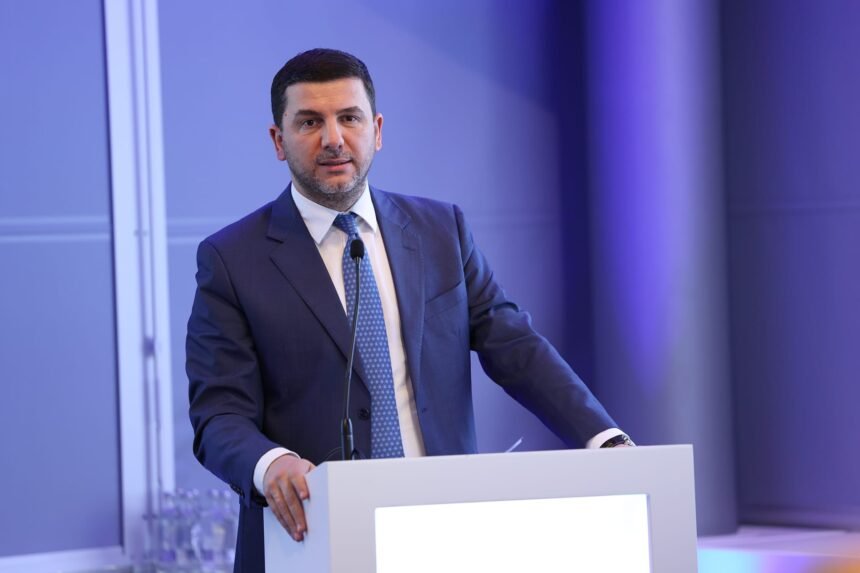Pristina, Kosovo – June 12, 2025 – Memli Krasniqi, leader of the Democratic Party of Kosovo (PDK), has stated that the Government of National Unity proposed by the Democratic League of Kosovo (LDK) is unlikely to materialize, citing its initial rejection by Vetëvendosje.
Krasniqi explained that the concept of such unity governments requires all parties to be at the table for discussions. “I haven’t seen the plan, to be honest. Regarding the proposal, I have stated several times that for such a proposal to be seriously considered, all parties must first express their willingness, and since Vetëvendosje immediately rejected it, I regret that such a thing automatically becomes impossible. Because the idea of such governments means that all parties are at the table and discuss it,” Krasniqi said.
PDK’s Alternative Proposal and Minority Support
“The moment Vetëvendosje is missing, it means we return to the proposal we gave as PDK, the government of the former opposition parties,” Krasniqi told RTV21. He affirmed that PDK is always open to discussing a government formed with LDK, AAK, and Nisma, and not only has the will but also the commitment to realize it if LDK also has the same willingness.
Krasniqi went further, guaranteeing that if LDK were to accept their proposal, he would personally secure 10 votes from minority parties, explicitly excluding the Serb List.
“We have the numbers because math is stubborn. If LDK has 19 deputies who vote for the former opposition’s government, then we have the numbers because we become 51, and I take it upon myself to secure 10 more votes from minority parties, but not from the Serb List. So, the math is very simple, the numbers are there if there is will; if there is no will, there will never be numbers,” Krasniqi stated.
LDK’s Call for Inclusive Government Amidst Crisis
Earlier today, LDK leader Lumir Abdixhiku unveiled his party’s plan for an inclusive government, arguing that neither the ruling party nor the former opposition parties hold a majority. Abdixhiku, in a press conference, emphasized the need for political parties to unite and collaborate.
“We should not treat our citizens as mere voting fodder to be handled every four years, without any responsibility. Let’s sit together, let’s work together, let’s emancipate and educate ourselves, and through this process, also reform Kosovo’s political scene,” Abdixhiku said.
He concluded by stressing that in a time of cynicism and confusion, they choose to believe that responsibility is still possible, that the state is not the property of parties but the inheritance and obligation of citizens, and that the current crisis is not an end but an excellent opportunity for a new beginning.







